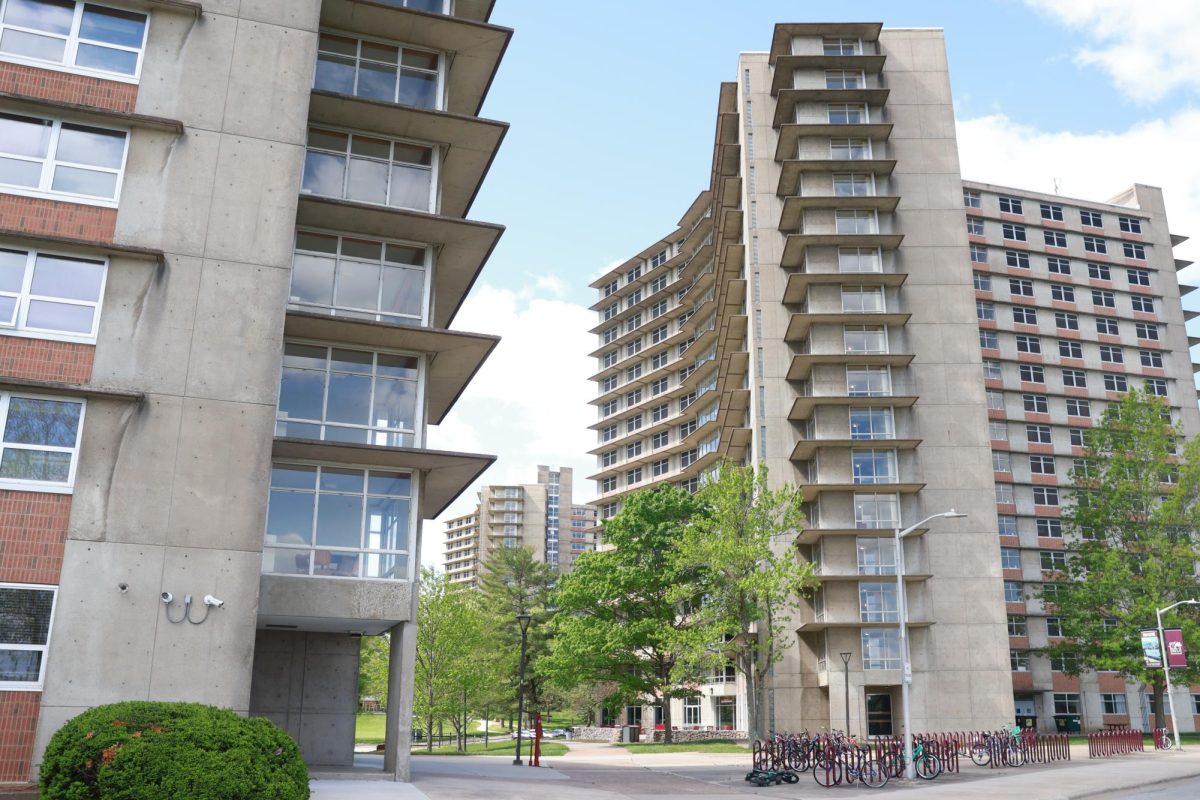City Council considers allowing alternative transportation
October 7, 2008
An alternative form of transportation may soon be available to Carbondale residents.
Members of the city council will vote tonight on whether residents should be allowed to operate neighborhood vehicles on city streets.
Neighborhood vehicles, which are self-propelled, four-wheel motor vehicles capable of attaining speeds of up to 30 mph, are approved as road-ready by regulations set by the United States Department of Transportation, but individual cities and states can choose to outlaw the vehicles on public roads. Cities typically set the maximum speed limit at 20 or 25 mph, according to various state legislation.
Advertisement
Examples of neighborhood vehicles include the Kurrent by American Electric, the Global Electric Motorcars by Chrysler and the Ford Th!nk.
While these vehicles pose potential danger to their passengers if involved in an accident with conventional cars, they provide passenger safety features that other neighborhood vehicles, such as golf carts, do not have. They include features such as safety signals and enclosed passenger compartments.
City Manager Allen Gill said the idea of allowing these vehicles is relatively new in Illinois. Gill said the proposed ordinance would put the city ahead of the rest in the state.
“There are only one or two cities in the state that have adopted an ordinance allowing [neighborhood vehicles],” Gill said. “We’re in the forefront of this.”
Councilman Lance Jack said the council had been informally discussing the use of neighborhood vehicles for some time.
“I think it’s a good idea that the city is pursuing registering these vehicles on a municipal level, especially in this climate where people are looking for alternative forms of transportation,” Jack said. “Anything we can do to make [transportation] easier and make it safe, we should explore all possibilities.”
Jack said the safety of these vehicles would be a main focus at tonight’s meeting. The proposed amendment would restrict the types of vehicles allowed to those registered by the National Highway and Transportation Safety Administration, he said.
Advertisement*
Councilwoman Mary Pohlmann said she knows of several people around town who already own neighborhood vehicles. She said they had probably purchased them without knowing they were not legal on city streets.
Pohlmann said she appreciates city officials considering alternative forms of transportation not reliant on gasoline, but is concerned about the number of restrictions on the vehicles.
By law, neighborhood vehicles are not allowed to travel on state highways because many do not travel more than 30 miles per hour. Because state roads such as Highway 51 and Route 13 run through Carbondale and intersect, drivers would be limited in what paths they could take, Pohlmann said. Pohlman said she is also concerned that the proposed $100 yearly fee to register the vehicle would also hinder purchases.
“When I look at how limiting the ordinance would be, I would get around better on my bicycle than on one of these vehicles,” Pohlmann said.
Global Electric Motorcars Marketing Manager Joan Michelson said neighborhood vehicles have several uses that conventional cars do not. Michelson said the vehicles are popular among college campuses and have several uses in both rural and urban areas, including yard work and traveling shorter distances.
“They can go on streets and off streets and underground because there are zero emissions,” Michelson said. “A lot of teenagers like them as their first car because there are zero emissions and they are inexpensive and require virtually no maintenance.”
Michelson said neighborhood vehicles have been popular among residents of warmer states for years. Their versatility and low cost makes them a great alternative to conventional vehicles, Michelson said.
Physical Plant Director Phil Gatton said his department has been researching neighborhood vehicles to try and implement them on campus. Gatton said the vehicles would likely be more cost effective and eco-friendly, but he would have to research usage and maintenance to see if the switch would be feasible.
Other issues to be discussed at tonight’s meeting include a presentation of the Revised Affirmative Action Plan and a public hearing on whether Carbondale should issue up to $550,000 of capital improvement revenue bonds to assist the Shawnee Health Service and Development Corporation in refinancing a construction project.
Justin Lange can be reached at 536-3311 ext. 258 or [email protected]
Advertisement








